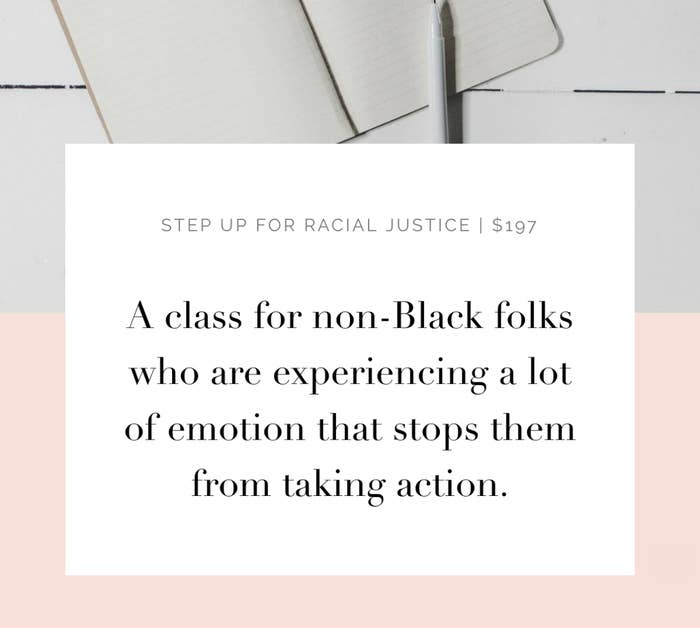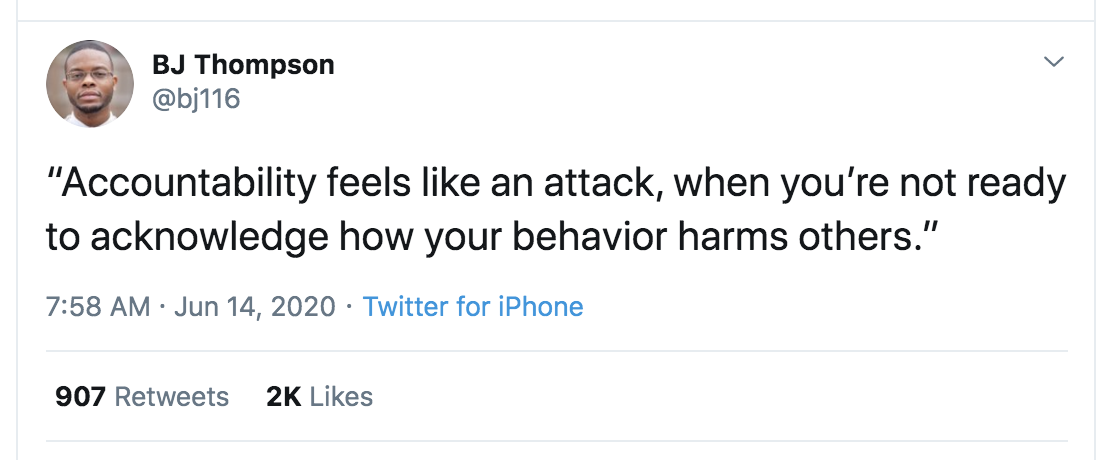This is Please Like Me, BuzzFeed News’ newsletter about how influencers are battling for your attention. You can sign up here.
Girl, Start Apologizing

This week, I got tons of emails about a social media scandal that was unfolding, starring a woman I recently covered for a different story on another social media scandal. Last Wednesday, a woman named Stephanie Sheldon sent a marketing email blast out selling an e-course priced at $197 about how she, a white person, would teach other white people about how to manage their “mind + emotions” while supporting the Black Lives Matter movement.
Stephanie is a prominent figure in the Cleveland area because she owns the big, hip Cleveland Flea market and is an important resource for many local business owners. At the time, she had caused a huge online kerfuffle after asking her Facebook group for feedback on how to improve the Flea, and then shutting down almost every comment that she disagreed with. After talking to people who raised concerns, they told me this is not an isolated incident, and that she’d been dismissive to vendors and small business owners before. It was just the first time it was happening on a mass, public scale.
So it was on the heels of this recent social media controversy that Stephanie launched her “racial justice course” and started yet another online firestorm. Unsurprisingly, a lot of people reacted angrily to her pricey e-course. I spoke to a handful of Black Cleveland natives and other people of color, some of whom have working relationships with her, who all said the venture was “out of touch,” “self-centered,” and like “a Reductress article.”
One of them, a 31-year-old named Brittany Moseley, noted that courses teaching white people how to be better allies have been offered by local Black Lives Matter activists for years — and for free.
“She needs to just step back. She needs to know that, at this point in time, people do not need to hear from Stephanie Sheldon and her thoughts on race,” Brittany said.
Another local named Robert Gatewood straight up called it a “revenue generating opportunity.”
When I reached out to Stephanie, she responded with a pretty lengthy statement. But it started with: “Thanks for reaching out. The criticism is totally valid.”
“I took initiative without considering the effect of it on the very people this work is meant to support,” she wrote. “It was a mix of my own frustration combined with a belief that I should be doing more to help in the ways that I have agency that lead me to decide to offer this class. It doesn't even make sense for me to have the class, much less charge for it.”
She said after she received a barrage of criticisms just like Brittany and Robert’s, she pulled her course down in about a day. “It was a mistake and one that I'm deeply sorry about,” she added, confirming that no one had actually purchased the course.
This contrasts sharply with the way Stephanie had approached feedback and backlash during her last scandal in February this year. When I reached out to her back then, she responded saying the many people who were upset were just vendors who “performed poorly at the Flea” and their opinions are "not substantiated.” Her refusal to accept any responsibility for her conduct is what led the situation to spiral out of control and ultimately become the social media scandal it did.
So, her willingness to quickly apologize this time is a big change, although one I wasn’t super surprised by given recent events. It seems like many white people who were ignorant about systemic racism and lack of diversity in their community had suddenly woken up to these issues, and seemingly overnight vowed to do better. (I still don’t quite understand how this happened so quickly, so please get in touch if you have any good theories or personal experiences.) I don’t want to give Stephanie too much credit because this course was extremely insensitive, centered around herself, and opportunistic. It took a lot of time, energy, and emotional labor from the Black community to make her aware of why. However, while Stephanie apparently didn’t learn enough from her last social media pile-on to avoid launching the thoughtless course in the first place, she did apparently learn how to quickly apologize.
This saga was hyperlocal to the Cleveland community, but it speaks to a larger trend. One thing I have noticed since these renewed anti-racism discussions is that influencers and otherwise influential people seem to be more quick to apologize. Some are actually receiving valid criticisms and then taking action. The thing that has frustrated me the most during years of covering famous people is their inability to confront or engage with criticism. Not every criticism is valid or deserves repenting, but it’s especially important to be able to distinguish between superficial critiques and those that come from a place of deep, historic hurt.
A friend recently shared the following tweet from @bj116: “‘Accountability feels like an attack, when you’re not ready to acknowledge how your behavior harms others.”

So, forgive me if this is a bit passive-aggressive, but I’m using this one example and newsletter entry as a kind of subtweet to all of the past and future influencers who are still struggling with accountability. I am hoping that Stephanie’s apology is indicative of a larger trend, and influencers are finally getting to the point where they will be forced to apologize and own it when they mess up.
Influencers, you may have thousands if not millions of fans who support everything you do — some perhaps even directly supporting you with their money. That’s great for you, I guess, but it creates a world where you may believe you are infallible. You’re not, in fact, none of us are (breaking news!). Admitting when you’re wrong is not only your responsibility, but the first step in having a positive influence on the world. As YouTuber Akilah Hughes said, if you’re not influencing in that direction, you’re a salesperson for brands.
Some off-the-cuff questions I have about this Instagram from Caitlyn Jenner:
I came across this recent photo Caitlyn Jenner shared on my finsta feed and asked my editor if I could just throw this in at the end of my newsletter. I don’t want to dedicate too much space or time, but I have some questions about it:
Why is no one wearing a mask?
Since when did Caitlyn and fan non-favorite Bachelor Peter Weber become friends?
Why are some of Peter’s family members also there?
What does her caption — “Wisdom and maturity won over youth and enthusiasm” — mean?
Why is Caitlyn holding up a dollar bill?
WTH? To all of it.
If you have any answers, email me.
Until next time,
Tanya
